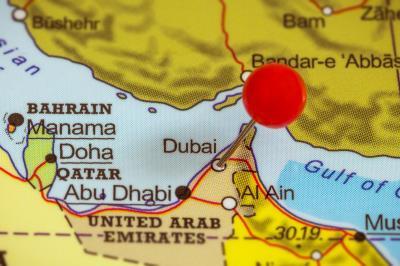The insurance markets of the Gulf countries are broadly stable, the rating agency said in a segment report, but reinsurance was flagged as a vulnerability for local carriers.

AM Best is maintaining its ‘stable’ outlook for the insurance markets of the Gulf Cooperation Council (GCC).
The GCC comprises Bahrain, Kuwait, Oman, Qatar, Saudi Arabia and the United Arab Emirates (UAE).
Positive factors driving the GCC insurance market’s outlook, according to AM Best, include:
- High oil prices continue to fuel the region’s fiscal surpluses and provide resilience to challenging global macroeconomic conditions
- Growth prospects for the insurance sector remain plentiful as new insurable risks enter the market
- Mergers and acquisitions activity continues to be a feature of the GCC market, bringing the potential to improve market profitability and reduce price competition over the longer term
- Increasing regulatory scrutiny leading to a growing focus on risk management and corporate governance
Factors moderating these positives, the rating agency said, include:
- Markets of the GCC remain highly saturated, with intense competition driving pricing pressure and threatening technical margins
- Rising operating costs - the result of improving regulatory regimes and the implementation of IFRS 17 - squeeze margins, particularly for small- and mid-tier companies
- Increasing frequency of weather-related losses in certain GCC countries, introduces volatility in earnings and tests insurers’ risk management capabilities
- Tensions in the Middle East, threaten the regional geopolitical stability and introduce economic uncertainty
Insurers ‘vulnerable’ to the changing reinsurance market
“Insurers in the region are heavily reliant on reinsurance capacity to support participation on large-scale government-related contracts, mainly for commercial property and engineering projects,” said AM Best.
“With insufficient capital to support these risks independently, GCC insurers typically cede a sizeable proportion of premiums to the international reinsurance market. Furthermore, for many insurers in the region, inwards reinsurance commissions from these reinsurance placements for more substantial components of underwriting profitability,” the report said.
“While the availability of reinsurance capacity has remained copious during recent hard market conditions, insurers in the region may face challenges in securing reinsurance, as the frequency and severity related losses – namely hail, cyclone and flooding – has increased in many territories across the GCC,” AM Best continued.
“Reduced capacity from international reinsurers could lead to an increase in the cost of reinsurance, changes in reinsurance structures, including lower retentions, and reduced inward profit commissions. All of which can dampen – and increase the volatility of – earnings. As such, AM Best expects to see a greater emphasis on risk selection and management from players with such exposures,” the report added.










No comments yet